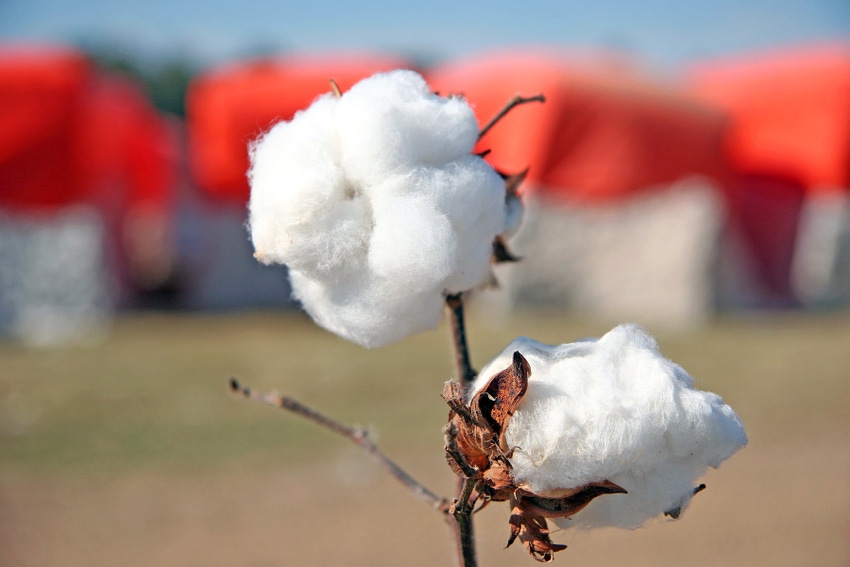
Study on cotton check-off shows big benefits
Economic analysis conducted by Forecasting and Business Analytics, LLC, showed that the Cotton Research and Promotion Program, known as the cotton check-off program, produced a number of benefits for cotton producers and importers.Because of the check-off, cotton farm prices averaged 5.4 cents per pound higher and U.S. cotton production averaged 500,000 bales higher.The study showed that the cotton check-off pushed annual world consumer demand for cotton higher by 2 million bales per year and increased profits for U.S. importers of cotton by an average of $900 million per year.

An independent study shows that the Cotton Research and Promotion Program generates a positive return for U.S. cotton producers and importers of cotton products and generates benefits for U.S. taxpayers.
The economic analysis conducted by Forecasting and Business Analytics, LLC, noted that the cotton check-off program produced the following benefits: U.S. cotton farm prices averaged 5.4 cents per pound higher; U.S. cotton production averaged 500,000 bales higher; annual world consumer demand for cotton was higher by 2 million bales per year; U.S. mill consumption of cotton was 1.2 million bales higher than it would have been without the program; and U.S. importers of cotton products increased profits by an average of $900 million per year.
The study concluded that from 1986 to 2010, the program generated an $8.80 return for each dollar invested by producers ($4.20 for producers and $4.60 for the U.S. government) and from 1992 through 2010, a $10.70 return (after-taxes) for each dollar invested by U.S. importers of cotton products.
Additionally the program generated savings to the U.S. government even though it is exclusively funded by U.S. cotton producers and importers of cotton and cotton products.
William A. Gillon, president and CEO of The Cotton Board, which oversees the program said, “This detailed economic analysis of the Cotton Research and Promotion Program shows very clearly that producer/importer promotion programs can generate positive returns through coordinated, effective research and promotion of their products.
“A research and promotion effort of this size and scope cannot be carried out by individual cotton producers, and that is the beauty and value of this program. Cotton producers benefit, users of cotton and cotton products benefit, and taxpayers benefit. Clearly, research and promotion programs can help create revenue and jobs for agriculture and closely related industries. This study indicates the Cotton Research and Promotion Program is a clear example of a government/private sector partnership that has generated huge dividends.”
Forecasting and Business Analytics reported preliminary findings to the Cotton Board during its March 2011 meeting stating, “Unequivocally, cotton producers, importers and the government benefit from the check-off program.”
The cotton check-off program is administered by the Cotton Board, conducted by Cotton Incorporated and governed by the USDA. The program is funded entirely by assessments levied on U.S. cotton producers and importers of cotton and cotton products. The Federal Agriculture Improvement And Reform Act of 1996 requires that all check-off programs conduct an independent review of their program every five years to evaluate the effectiveness of the promotion program.
About the Author(s)
You May Also Like





